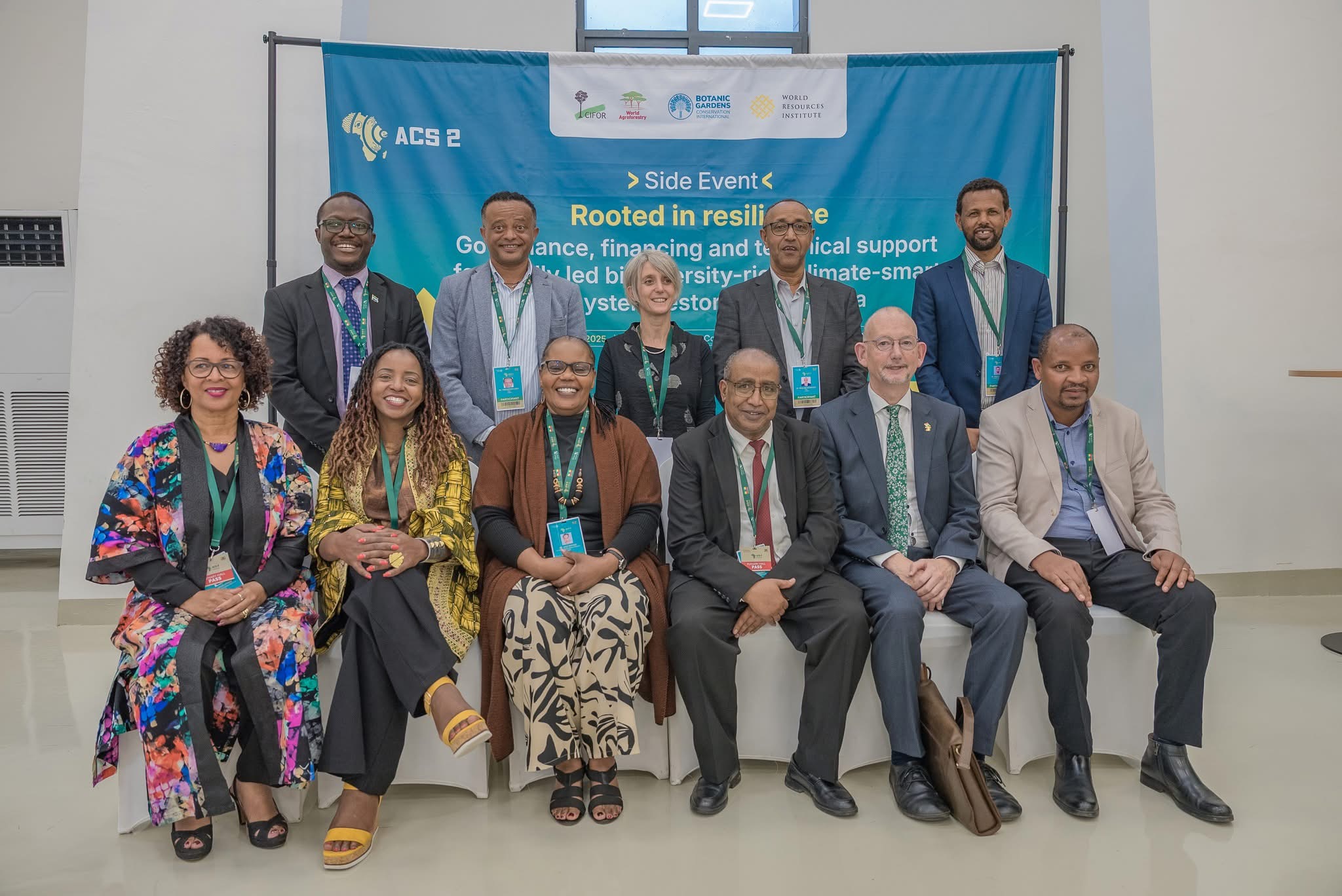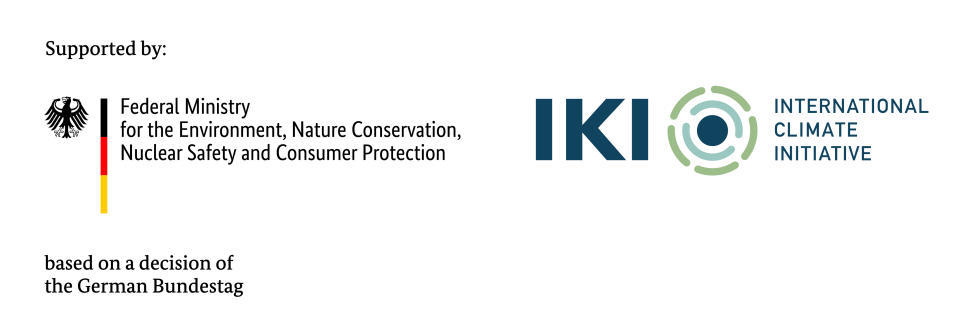The Global Biodiversity Standard Presented at the Africa Climate Summit 2, Addis Ababa
-
Country
Ethiopia -
Region
Africa -
Programme
BGCI -
Workstream
Saving Plants -
Topic
Ecological Restoration -
Type
Press Release -
Source
BGCI
News published: 16 September 2025
Rooted in resilience: Governance, financing and technical support for locally led biodiversity-rich, climate-smart ecosystem restoration in Africa
BGCI and CIFOR-ICRAF convened a side event at the African Climate Summit 2 in Addis Ababa, called “Rooted in resilience: Governance, financing and technical support for locally led biodiversity-rich, climate-smart ecosystem restoration in Africa”. Through high-level dialogue with policymakers, researchers, grassroots voices, and technical experts, this event explored tools to unlock scalable and equitable restoration for climate, biodiversity, and resilient livelihoods – through investing in high-quality native tree seed and seedling systems, supporting locally driven restoration, channeling climate finance to grassroots actors, and fostering inclusive governance.
Grounded in experiences from African-led initiatives by CIFOR-ICRAF (e.g. Right Tree, Right Place-RTRP-Seed, Provision for Adequate Tree Seed Portfolio PATSPO, Quality Tree Seed (QT-Seed), Multifunctional Agroforestry for Ethiopia, Integrated Climate- Smart Livelihood Improvement Program-ICSLIP), Botanic Gardens Conservation International (Right Tree, Right Place-RTRP-Seed, The Global Biodiversity Standard), and World Resources Institute (Restore Local), and implemented with national partners, this event featured strategies to embed nature-based solutions into Nationally Determined Contributions and discuss how African-led financing mechanisms can strengthen locally led restoration.Participants also learnt about the new Transformative Partnership Platform for quality tree seed and seedling delivery systems (Quality Tree Seed TPP) and how to contribute to its development.
The Global Biodiversity Standard
BGCI presentation, “The Global Biodiversity Standard: Ensuring Nature-Based Initiatives Deliver High-Integrity Outcomes for Biodiversity and Livelihoods”, highlighted the growing risks of nature-based initiatives failing to deliver lasting biodiversity or livelihood benefits without robust safeguards and how TGBS can strengthen African leadership in advancing biodiversity-positive, climate-resilient, and community-driven solutions.
The Global Biodiversity Standard (TGBS) provides independent, science-based certification and tailored mentoring to ensure projects achieve high-integrity outcomes. By assessing ecosystem integrity, protection, community engagement, and adaptive management, TGBS verifies impact, reduces investment risk, and builds capacity. Underpinned by principles such as planting the right tree in the right place, TGBS builds trust for policymakers, funders, and communities.
A call to action for policymakers:
Policymakers must demand independent verification of biodiversity impacts and assurance that public and private investments yield high-integrity outcomes. Without robust safeguards and measurable standards, restoration risks becoming a missed opportunity. It is essential to embed tools like The Global Biodiversity Standard into national frameworks to guarantee that restoration delivers tangible, lasting benefits for climate, people, and biodiversity.
We thank the State Secretary at the German Federal Ministry for the Environment, Climate Action, Nature Conservation and Nuclear Safety (BMUKN), Jochen Flasbarth, for his participation and IKI to support the project “The Right Tree in The Right Place for The Right Purpose: Supplying High-Quality Tree Planting Material of Native Tree Species for Landscape Restoration in Sub Saharan Africa (RTRP-Seed).



![]()
Calling all Experts
As a membership benefit exclusively for BGCI Institutional Members, staff associated with these institutions can apply for inclusion in BGCI's Directory of Expertise.
Support BGCI
You can support our plant conservation efforts by sponsoring membership for small botanic gardens, contributing to the Global Botanic Garden Fund, and more!